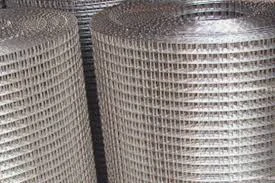nov . 15, 2024 19:34 Back to list
chicken coop mesh
Choosing the Right Chicken Coop Mesh for Your Flock
When it comes to raising chickens, providing a safe and secure environment is paramount. One of the most crucial elements in ensuring your chickens are protected is the type of mesh you use in your chicken coop. The right chicken coop mesh will not only safeguard your flock from predators but also allow for adequate ventilation, ensuring their health and comfort. In this article, we will explore the various options available for chicken coop mesh and the factors to consider when making your choice.
First and foremost, it's essential to understand the different types of mesh available on the market. The most common materials used for chicken coop mesh include hardware cloth, chicken wire, and welded wire fencing. Each of these options has its benefits and drawbacks depending on your specific needs.
Hardware Cloth This is often considered the best choice for chicken coops due to its durability and flexibility. Made of strong, galvanized steel, hardware cloth is designed to withstand the attempts of predators trying to break through. It comes in various sizes, with a common opening size of 1/2 inch, making it small enough to prevent rodents and other small animals from entering. Additionally, hardware cloth is versatile; it can be used for walls, windows, and even flooring in your coop.
Chicken Wire While chicken wire is one of the most popular options, it’s important to note that it may not provide as much protection against larger predators like raccoons or foxes. Made of thin wire and having larger openings (typically 1 inch), chicken wire is best suited for keeping chickens in rather than keeping predators out. If you opt for chicken wire, consider using it in conjunction with additional protective measures, such as hardware cloth around the chicken coop's perimeter.
chicken coop mesh

Welded Wire Fencing Another robust option is welded wire fencing. This type is welded at every intersection, creating a strong structure that's difficult for animals to breach. Like hardware cloth, it is available in various sizes, allowing you to customize your coop’s security. However, it may require additional framing to keep it upright and can be more expensive than other options.
When selecting mesh for your chicken coop, consider the specific threats present in your area. If you live in an area with high predator activity — such as raccoons, hawks, or snakes — a stronger option like hardware cloth or welded wire may be necessary. Be sure to bury the mesh at least a foot underground to deter digging predators.
Ventilation is another critical aspect of coop design that is often overlooked. Proper airflow is vital for maintaining a healthy environment for your chickens. Mesh panels can be strategically placed to allow for airflow while still offering protection from predators. Using hardware cloth or welded wire in combination with solid walls can help achieve the right balance between ventilation and security.
Lastly, consider ease of installation and maintenance. Some types of mesh can be more challenging to work with than others. Hardware cloth, while effective, can be stiff and may require special tools to cut and secure it in place.
In conclusion, the choice of chicken coop mesh is vital for the safety and well-being of your flock. By understanding the different types of mesh available and assessing your specific needs, you can create a secure, comfortable environment for your chickens to thrive in. Whether you opt for hardware cloth, chicken wire, or welded wire fencing, your decision will significantly impact your chickens' overall health and security.
-
Weather Resistance Properties of Quality Roofing Nails
NewsAug.01,2025
-
How Galvanised Iron Mesh Resists Corrosion in Harsh Environments
NewsAug.01,2025
-
Creative Landscaping Uses for PVC Coated Wire Mesh Panels
NewsAug.01,2025
-
Common Wire Nail Dimensions and Their Specific Applications
NewsAug.01,2025
-
Choosing the Right Welded Wire Sheets for Agricultural Fencing
NewsAug.01,2025
-
Anti - Climbing Features of Razor Wire Barriers
NewsAug.01,2025









